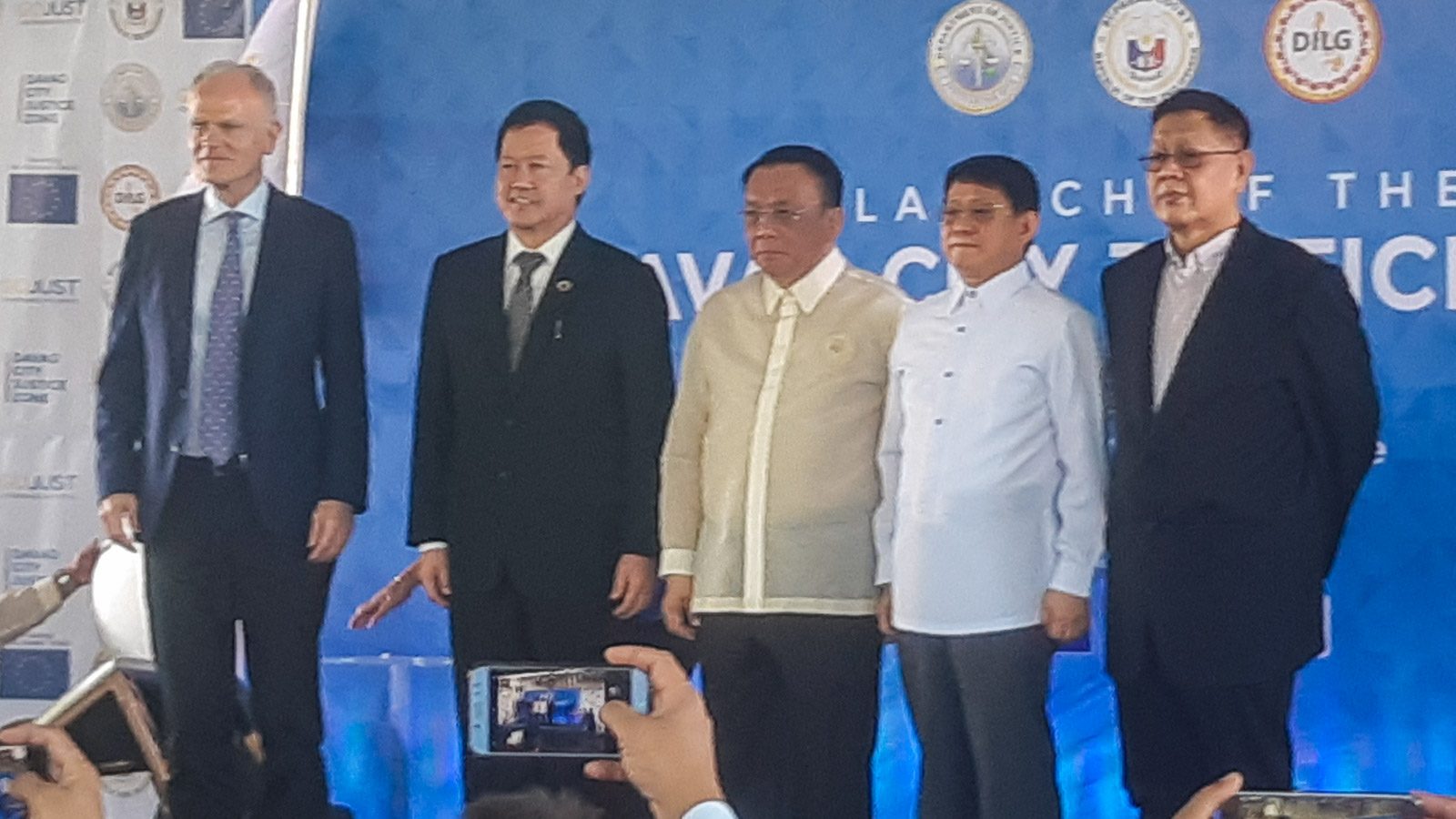SUMMARY
This is AI generated summarization, which may have errors. For context, always refer to the full article.

DAVAO CITY, Philippines – Joenel (not the real name) was 18 when he was arrested for drug pushing, a charge he continues to deny to this day.
“Naalaan lang jud ko sir (I was mistaken for a pusher sir),” he said.
Now 21, Joenel had spent the past 3 years inside the crowded Davao City Jail in Barangay Ma-a here.
His case barely moves because of thousands of other cases that judges have to hear.
But Joenel’s fate could soon change with the selection of Davao City as a Justice Zone, the third in the country after Quezon City and Cebu City.
Justice Secretary Menardo Guevarra said on Thursday, March 14, that the establishment of the Justice Zone in the city was decided last week when he met with his counterparts in the Justice Sector Coordinating Council.
The JSCC also counts Interior Secretary Eduardo Año and Chief Justice Lucas Bersamin as members.
Guevarra said the JSCC looks for alternatives to improve the administration and delivery of criminal justice.
With this in mind, they organized the Justice Zone. Here the police, prosecutors, judges, public attorneys, officials of detention facilities and other stakeholders can come up with an appropriate structure for better collaboration.
“In the fulfillment of our duties, we face real constraints, be it shortages in material resources, in time or in imagination. The solution to these constraints had always been to enlarge our respective institutions. Demands for greater funding, more buildings and facilities and more personnel among others have always been our one size fit all solution. These solutions however have their own limits,” he said in his speech.
He said the JSCC is trying to confront these problems “which are too heavy” for each agency to bear – thus the cooperation.
Bersamin said each of the Justice Zones “enhances the coordinative capabilities of the pillars of justice.”
European Union Ambassador to the Philippines Franz Jessen said the EU support the effort as part of its commitment to the rule of law. “The accountability of justice institutions and the belief that good governance, democracy and the rule of law” leads to sustainable development, he said.
“What we are trying to do here is create an environment where people are happy and can go about their daily lives doing their best to improve their conditions without unnecessarily interfering in what other people are doing,” he said. “That’s why the justice system is here to support us and to make sure that we all make the best possible lives.”
Davao Executive Judge Emmanuel Carpio said under the Justice Zone, there will be swift but fair dispensation of justice because every agency involved would now work together to achieve a common purpose, which is the delivery of justice to everyone.
He said with its huge population, the city is only being served by 14 Regional Trial Courts and 7 Municipal Trial Courts in Cities.
“These numbers are barely enough to address the demands of equitable and swift justice in Davao City,” he said.
Joenel could not agree more.
Data from the Bureau of Jail Management and Penology in Southern Mindanao said the Davao City Jail is among the most congested in the region at 702% more than its capacity. Intended to only have 421 inmates, the jail is now packed with 3,378 prisoners – whose cases are awaiting resolutions in courts.
Carpio said one way to decongest jails, such as the Davao City Jail, is strengthening sector coordination such as what is being done now through the JSCC.
He said the Supreme Court has also implemented the e-Court system, where litigants can inquire about the status of their cases and follow up on them.
“We also have the e-Subpoena for the police, which ensures that policemen could attend trials, where their presence are needed,” he added. In the past, hearings would be reset because policemen could not testify due to the alleged non-receipt of subpoenas.
Carpio said there is also the Supreme Court guideline for continuous trial, wherein lawyers are barred from making dilatory tactics.
“All these efforts are geared towards the fair dispensation of justice,” he added. – Rappler.com
Add a comment
How does this make you feel?
There are no comments yet. Add your comment to start the conversation.